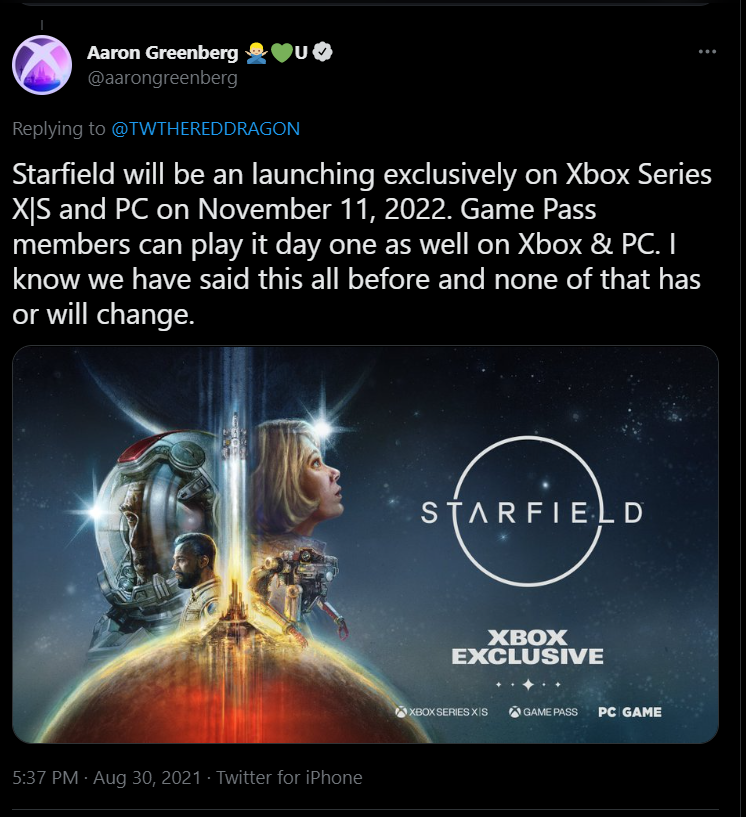I give you a direct and literal quote from the CEO of the organization, he has said explicitly and in extremely clear terms that starfield will be on PC and Xbox only.
The fact that you're ignoring that, and then have the audacity to tell me that I don't want to listen to facts is hilarious.
No amounts of walls of text you post will change the fact that you are relying on a very old quote from a lesser authority instead of what the CEO himself has said more recently.
Such Spencer quote doesn't exist, read the wall of text or at least the image I included on that post.
@Yurinka: You think Phil Spencer let GQ print an article based on an interview of him, and didn't fact-check the interviewers paraphrasing of things not quoted?
I mean it's... possible.. but I doubt it.
I think it's a similar case of the 'we believe in generations' interview. The proper quotes say a thing (let's say what they are doing) and an unquoted sentence or two say a different thing (what his fans want to hear). That second part gets highlighted and goes viral.
In terms of PR that wrong message going viral benefits the side of the interviewer during a long period of time. After it, turns out that the 2nd part wasn't the real one, but instead was the first. The interviewed can say 'hey, I didn' lie'.
For these interviews, the interviewed ones get trained by their PR team and have a list of things they can't say and a list of other things that they will try to introduce to a specific message to send including specific wording. They also have prepared replies for specific controversial topics that they'll try to avoid if potentially asked about it. They also prepare a specific small 'exclusive' bit or two for each interview to give them a good headline or well, something not said a ton of times before in other interviews.
All this inhouse, before meeting the interviewer, who doesn't know anything about this. Then they have the interview and the PR team rarely review it before publishing it (in the case of websites), but during the interview the PR folk may interrupt and clarify some point. Once published if there is something blatantly wrong that may damage the company may politely ask them to rectify it. If something is wrong but benefits the company don't ask to rectify it.
The journalists obviously hate having a PR guy in the interviews, being asked to rectify something or knowing the guy they are interviewing have the replies prepared and that will reject speaking about some topics.
I've been there both as interviewed or as part of let's say the 'PR team' for a big publisher, and have friends on the journalist side. It's something that sucks but it's needed for public companies with stocks, investors and huge budgets.







